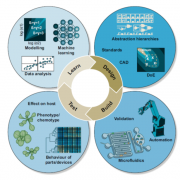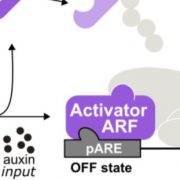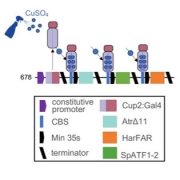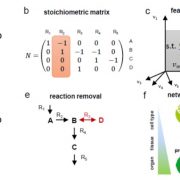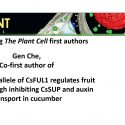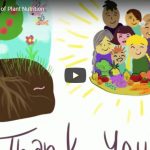Interviews with synthetic biologists: Karsten Temme, Pivot Bio
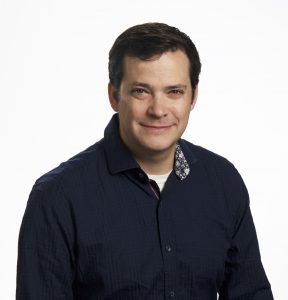 Synthetic biology is a set of tools, a way of thinking, the integration of engineering principles into biological sciences, and potentially the biggest opportunity for advances in plant sciences since PCR. Yet many struggle to define it, and fewer still grasp its full potential.
Synthetic biology is a set of tools, a way of thinking, the integration of engineering principles into biological sciences, and potentially the biggest opportunity for advances in plant sciences since PCR. Yet many struggle to define it, and fewer still grasp its full potential.
Now, four early-career synthetic biologists have conducted a set of video interviews with leaders in the field of plant synthetic biology, in both academic and industrial arenas.
In the sixth of the series Interviews with Synthetic Biologists, Jenna Gallegos, a postdoc at Colorado State University, interviews Karsten Temme.
Karsten Temme is the CEO and co-founder of the biotech start up Pivot Bio. He got his PhD in Bioengineering from the University of California at Berkeley.
Pivot Bio was born out of an ambition to replace synthetic nitrogen fertilizer with something more sustainable and safer for farmers to use. Its co-founders, Karsten Temme and Alvin Tamsir, developed a new crop nutrition solution and have built a company to provide sustainable solutions for farmers and improve the health of the planet through scientific innovation. have received funding from the National Science Foundation and Bill and Melinda Gates Foundation.
Excerpts from interview, lightly edited
Can you tell us a little bit about Pivot Bio?
We’re a start-up that focuses on reinventing fertilizer and how we grow crops around the world. For us it’s really a three-step process. Identify the parts of the natural microbiome that have the ability to fix nitrogen and also have strong relationship with a given crop. Those microbes aren’t actively producing measurable amounts of nitrogen today is because of heavy fertilizer use. All of that exogenous nitrogen triggers a negative feedback look in the microbe’s genetics and it silences their nitrogen fixation genes. The next step is to reawaking those genetics to become active participants in fixing nitrogen while they’re living in symbiosis with the crop. The third part of how to design that into a product that can have shelf stability and be easy to use.
The plant is a mimic of what a lot of synthetic biologists do in a big fermenter. The plant is taking carbon dioxide and sunlight and fixing carbon into sugars. About 30 – 40% of that fixed carbon is exuded from the roots as a feedstock for these microbes. Those microbes are transforming that into different things. One of the dominant things is fixed nitrogen. That’s going back into the plant to be a building block for the rest of biomass.
That’s to us is what synthetic biology is about. How do we accelerate or improve the efficiency of that conversion of sunlight into sugars through these microbial catalysts that are fixing nitrogen in a way that they’re essentially robust to all of this excessive use of fertilizer in the environment.
Could you share something about your scientific journey?
I worked on nitrogen-fixation in Chris Voigt’s lab. We had about 50 years of great microbiology and genetics studying nitrogen fixation. We wanted to ask the question using synthetic biology: do we understand that blueprint well enough to rebuild the whole system from scratch?
What excites you most about plant synthetic biology?
Over the last hundred years, a lot of things that drive industry are rooted in chemistry. Being able to take or build new materials or new types of products due to chemistry, but that’s really static. Biology, by being able to respond to different conditions in the environment, can do something different every day. It’s so much cooler than chemistry. All of that starts in agriculture with plants, we can grow the solutions to problems in the world around us.
Read more:
We should discuss soil as much as we talk about coal (Gates Notes 2019)
Fast Company’s “Most Innovative Companies” Pivot Bio (Fast Company, 2019)
Midwest Corn Farmers Put New Fertilizer Alternative To The Test (Forbes 2019)
Jenna Gallegos joined the Peccoud Lab at Colorado State University as a postdoc in 2017. Jenna got her PhD in plant biotechnology at UC Davis where she studied gene expression in Arabidopsis. Her work as a postdoc focuses on high-throughput yeast genetics and developing tools for strain and sequence verification. In addition to skills in molecular biology, Jenna is an avid science communicator. She tweets, blogs, makes videos, writes science-based news articles, and serves as the news editor for the Oxford Journal Synthetic Biology. Before coming to CSU, Jenna interned as an ASPB-sponsored AAAS Mass Media Fellow at The Washington Post and on the BioDirect team within Monsanto’s Ag Productivity Innovations Organization in Woodland, CA. Follow Jenna on Twitter at @FoodBeerScience.
Previously in this series:
- Steven Burgess interviews Professor Jennifer Nemhauser, University of Washington.
- Steven Burgess interviews Michael Mendez, Renew Biopharma.
- Steven Burgess interviews Matthew Mattozzi, Conagen Inc.
- Jenna Gallegos interviews Tobias Erb, Max Planck Institute for Terrestrial Microbiology in Marburg
- Jenna Gallegos interviews Guillaume Barbier, Joyne Bio.
Stay tuned for more in this series of Interviews with Synthetic Biologists.


